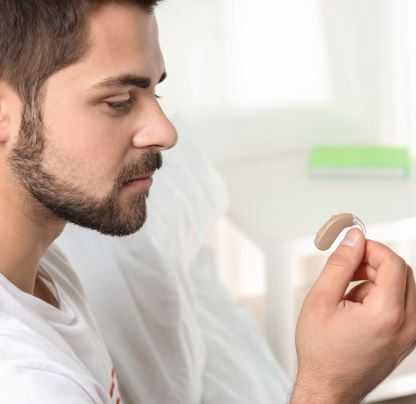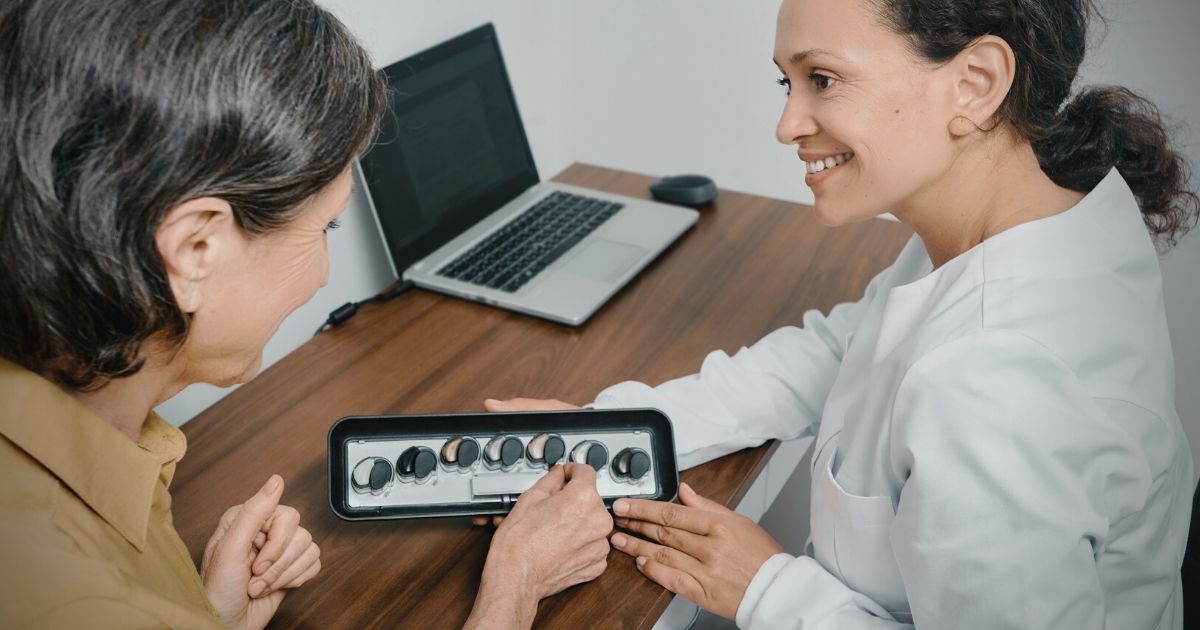I almost let the call go to voice mail. I was busy proof reading a piece that needed to be in the hands of an editor by the end of the day. I thought I recognized the number, though, so I took the call. I was wrong – I didn’t know the caller but when he told me why he was calling I couldn’t not continue the conversation.
The caller was looking for help for his eighty year old father who had just gotten his first pair of hearing aids. The son told me his father’s hearing aids were “tiny things,” and that he had difficulty putting them in and taking out. He was having trouble adapting to them and frustrated at his increasing inability to hear, to participate in his favorite activities.
His growing isolation resulting from his inability to talk to friends and family on the phone bore down on the whole family – recalling Dr. Mark Ross’s dictum that if one person in a family has a hearing problem, the whole family has a hearing problem.
In light of the dexterity problems I was told the father had, I suspected he had gotten over-the-counter (OTC) hearing aids as those “tiny things” seemed to me to be exactly the wrong thing to fit him with. A behind-the-ear, receiver in the canal, rechargeable pair with telecoils seemed a better option. Further, I learned he knew nothing about other devices that could be of enormous help to him like a Bluetooth® transmitter or hearing loop for the TV, or a text telephone. He was not aware of the local hearing device retail shop or of the local Hearing Loss Association of America chapter where he could socialize with and learn from his contemporaries. He was living on limited income and could use some of the free equipment available to him from the state’s equipment distribution program at the Commission for Deaf and Hard of Hearing, but he knew nothing of this state agency.
He, and his family, could obviously benefit from some counseling and possibly a handout on coping strategies and the do’s and don’ts of communication for people with hearing loss. Alas and alack, while reviewing all of these things, I learned that pop’s hearing aids were not purchased over the counter, they were dispensed by a hearing care professional…
Getting Hearing Aids vs. Getting Hearing Care

OTC HEARING AIDS ARE LESS EXPENSIVE SPECIFICALLY BECAUSE THEY DON’T INCLUDE IN-PERSON COUNSELING AND ASSISTANCE OF A LICENSED PROFESSIONAL
Having been trained by the Hearing Loss Association of America as a Hearing Loss Support Specialist, I have spent the last twenty years counseling hard of hearing people at HLAA chapter meetings, in presentations on “Living With Hearing Loss” and other topics, and even in private one-on-one sessions. When doing so I tell people about all of the things I reviewed with the caller seeking help for his father. I tell them the things my very first hearing care provider told me in 1985 when I bought my first pair of hearing aids. At presentations and some other meetings, like the one that hearing care professional gave me, I hand out a tri-fold brochure on assistive devices that can supplement the benefits of hearing aids. Another handout is the do’s and don’ts for communication involving someone with hearing loss.
I thought about this man again while reading a magazine article focused on the provision of hearing care and discussing how audiologists and hearing instrument specialists can differentiate their business model from that of the plethora of OTC hearing aid retailers now springing up like weeds after a summer rainstorm here in the desert southwest. The old saying, “You don’t know what you don’t know,” came to mind. The father of the man I talked to was a prime example.
He was sold a pair of hearing aids but was he given “hearing care”? Was he told about telecoils and the many places they can be used in Albuquerque? No, even though state regulations mandate that the provider do so. Was he counseled in the devices that could supplement his hearing aids like alerting devices or apps for his phone? Not a word. Of the services of the Commission for the Deaf and Hard of Hearing including a free Captel captioned phone? Doesn’t ring a bell. Of HLAA? What’s that?
To me, hearing care should include all of that information, that’s what you’re paying for when you buy a pair of hearing aids for $3,000 that can pretty much be duplicated with a $1,200 OTC pair.
Such counseling would help build a sense of respect and gratitude in the client toward the person who helped to dramatically improve his or her quality of life. It could result in repeat business and referrals for years. Studies have shown that demonstrating how a looped TV could not just end the battle of the remote in a home, it could win a customer for life.
If you’re paying a “blue shirt” at Best Buy or the person at the prescription counter at Walgreens for a pair of over-the-counter hearing aids, you’re getting exactly what you paid for. If you’re paying a trained and licensed professional for hearing aids, it seems to me that you should also be getting hearing care that includes a lot more counseling and information than what appears in the user manual for the hearing aids you’re paying for.


